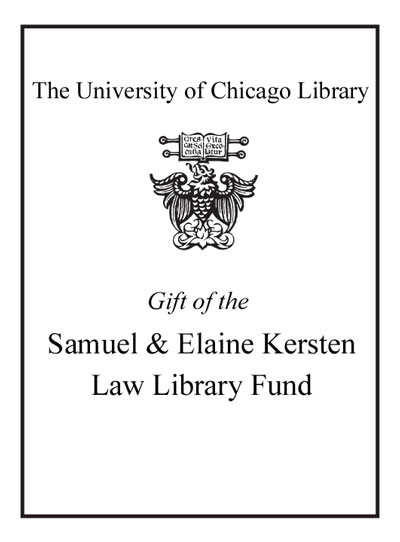Review by Booklist Review
The authors, both correspondents for the Financial Times, have written a powerful chronicle of the riveting negotiations and litigation that led to Germany, Swiss Banks, and many European corporations and insurance companies paying out billions of dollars to survivors of the Holocaust and to families of those who didn't survive. Authers and Wolffe use a novelistic approach to heighten the drama of this process, which began almost 50 years after the end of World War II when a small group of lawyers, working separately, launched a campaign that reached into the highest levels of governments, banks, and corporations The campaign was waged on multi-fronts--starting with the Swiss banks that had absconded with billions of Nazi funds, and leading to European insurance companies which, when confronted with claims from the children of Jews murdered by the Nazis, bureaucratically closed the door on benefits. Finally, litigation was begun to pay reparations to those who were forced into slave labor during the war. In all, this is an almost Ludlum-esque page-turner. --Allen Weakland
From Booklist, Copyright (c) American Library Association. Used with permission.
Review by Publisher's Weekly Review
Authers and Wolffe, journalists for the Financial Times, trace the efforts made from 1995 to date to win compensation for those who lost assets and endured forced labor at the hands of the Nazis and their collaborators in WWII. They talk to the heads of Jewish organizations and senior American government officials, all of whom were fighting on behalf of the victims, as well as to the victims' lawyers. Using strategies such as threatened boycotts, calculated emotional outbursts, public pressure campaigns and class action suits, this group of Americans targeted European banks that had pocketed balances belonging to Holocaust victims, insurers who never paid out life insurance proceeds, and industrial concerns that benefited from forced (and even slave) labor during the war. Though impressive settlements have been negotiated, the story is a dispiriting one, regardless of how one feels about reparations: each new episode in the battle generated recriminations and bitterness among the plaintiffs, and distribution is the most contentious phase of all. Some of the lawyers are drawing multimillion-dollar fees while their clients receive amounts in the low thousands. Certain Jewish organizations that had led the compensation campaign are now fighting Holocaust survivors for control of the money. Authers and Wolffe's well-researched and nuanced book demonstrates how the struggle for reparations has simultaneously been a fight for justice and a vindictive squabble over money. (June 7) Forecast: Aside from this book's natural audience in the Jewish community, it should also be instructive to anyone interested in the hot question of reparations to African-American descendants of slaves. (c) Copyright PWxyz, LLC. All rights reserved
(c) Copyright PWxyz, LLC. All rights reserved
Review by Kirkus Book Review
A tangled tale of Nazi gold, Swiss banks, and dogged lawyers locked in titanic struggle. Call it a Bleak House for our time: Financial Times reporters Authers and Wolffe track what they rightly call an "epic battle" over monetary compensation for those who suffered imprisonment and slavery under Adolf Hitler's regime. That battle begins at least as early as 1946, when several leading Swiss banks failed to live up to the terms of an agreement with the Allies to deliver half of the wealth the Nazi government socked away in Swiss vaults. Though by some estimates this totaled at least $500 million at the time, the Swiss yielded only a token payment of $28 million in 1952. Pursuing this and other trails in the early 1990s, American attorneys Stuart Eizenstat and Israel Singer, Canadian magnate Edgar Bronfman, and other parties set in motion a chain of hearings and suits that in the end helped force an accounting--and one that would take several years and occupy the attentions of a small army of lawyers. An audit that cost at least a billion Swiss francs revealed, just as they suspected, that the long-dormant accounts of the Holocaust's victims had fed billions of dollars into the Swiss economy, with almost no effort having been given to finding their true owners or heirs. Pressing for that accounting from those banks and for compensation from the German and Austrian governments, as well as private concerns such as Daimler-Chrysler, proved to be a far more difficult matter than anyone might have foreseen, setting off bitter recriminations and intramural struggles among Jewish communities in Europe and America. The authors do a commendable job of charting the political and economic complexities of the various cases involved, keeping their narrative readable throughout--no easy task, given the minutia of international law, banking regulations, and other matters that inform this book. Those interested in international justice will find this both fascinating and disturbing; a worthy companion to Jean Ziegler's The Swiss, the Gold, and the Dead (1999).
Copyright (c) Kirkus Reviews, used with permission.
Review by Booklist Review
Review by Publisher's Weekly Review
Review by Kirkus Book Review

